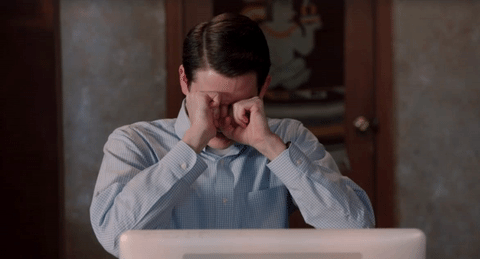
Explore how anxiety can show up in your life, work, and relationships
Read on

George Lakoff on How to Frame Disturbing Political News
This advice from George Lakeoff is so relevant and thoughtful that I want it to be available for everyone to see and bookmark. The below is copied from a post I shared on Facebook.
Lakeoff's wisdom as a cognitive scientist applies to all of us beautiful voyagers moving through this difficult time in America. Hugs, everyone.

Are you finding yourself Dead Sea Scrolling on news stories?
These days the news is unprecedentedly grim. There's no getting around it. We've never had a more divisive culture in America. It is tearing apart families and instilling a deep feeling of panic in many, many people.
The Dead Sea Scroll is particularly harmful to mental health at a time like this. That's why I posted this simple message today on Facebook.

Anxiety Does Not Make You Better At Work
This is hard for me to say to you: fear of fear and excess cortisol, adrenaline surging through your body does not help you be better at your job or family life. The campaigns you've mounted to avoid hormonal physical punishment may lead you to believe that you are better and stronger as a result of your struggles. That's just YOUR STRENGTH shining out despite an impediment. That's not anxiety's good work. You can be just as good and strong without the ongoing obstacle of the hormone surge. You can be even stronger. Happier.

Try: Giving Your Inner Critic a Silly Name
Need a fresh idea for dealing with your inner critic? Of course you do. The critic never goes away. The issue is how to deal with him or her.

Try: Slow TV
My friend Carl (sharer of great ideas in How to Deal with an Anxious Partner) told me that he found himself watching a two-hour train ride to Oslo on Netflix.
"Oh yeah?" I said. "What happened?"
"Literally nothing," he said. "And it was great."

Anxiety and Your Body : An Intuitive Connection
Anxiety is very common at all ages. Even youngsters and the elderly experience it.
If you were to pick out 20 random people off the street I can assure you, at least 15 would have faced anxiety at some point in their life's.
Considering that, I want to explore:
What does anxiety do to your body?

#LikeFreeMovement
The more we spoke, the more I realized that aiming for fewer likes is a great goal for someone with anxiety. If I learn to share my ideas without expected responses, it will free me to forge new paths. I want to convince each of you to share my goal. The hashtag I've begun using to reinforce this message (even to myself) is #LikeFreeMovement.

Why “Nice” Advice Used to Stress Me Out
When you have an anxiety disorder, you’re used to navigating the world of “life advice” like football players doing the block and tackle. New perspectives are coming at you from all directions, and it’s your job to quarterback yourself through the experience intact. It’s not always easy, though.
In the past few years, I’ve learned that even well-intentioned, “nice” advice needs reframing in order to avoid leaving a mark. It’s just part of having anxiety.